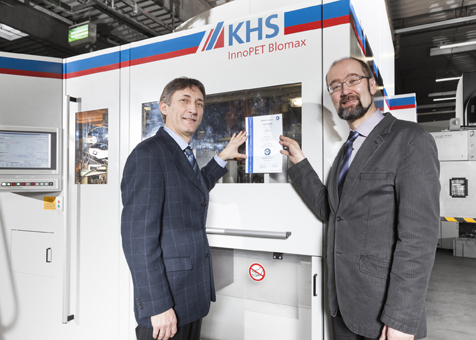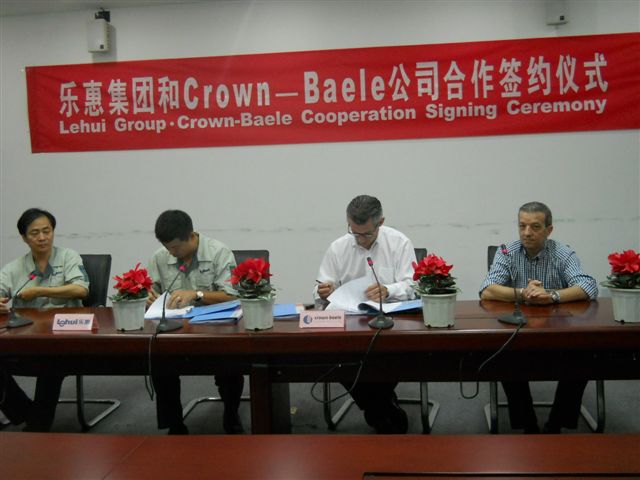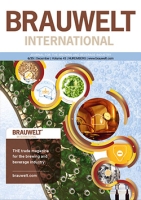Energy quotas are already in force in some Asian and Arabic countries today, and this topic will be of great importance in the future. With Airback Plus, KHS Corpoplast has developed a system which helps to reuse much more compressed air from the stretch blow molding process than was previously the case.
It is not easy to track down a brewery in Austria which can be described as a craft brewery. “What do you mean by craft breweries? Strictly speaking, craft breweries do not exist in Austria”, according to information initially received from the Verband der Brauereien Österreichs (Association of Austrian Breweries), at least not as they exist in the United States, Belgium or Holland. “But there are already a large number of breweries with a creative assortment of products, each with their own taproom and an interesting story,” comes the reassuring response. Small, emerging breweries, some of them with quite innovative beers, are coming out the woodwork. Since the year 2000, the number of small breweries in Austria has almost doubled. About three years ago, the brewery “Schwarzbräu” joined the ranks.
Beer-spoilage bacteria may be the reason
As an independent testing and certification company, TÜV SÜD awarded the InnoPET Blomax Series IV the "Energy-efficient System Technology" certificate. The presentation of the coveted TÜV certificate was preceded by a comparison of the InnoPET Blomax Series IV and the predecessor model, the InnoPET Blomax Series III, in practical operation. Identical container types were produced on both machines. The result: the InnoPET Blomax Series IV reduces the comparative blow air consumption by up to 30 percent, it requires 43 percent less electrical power, and requires 49 percent less cooling capacity. To date, KHS Corpoplast predicted a 15 percent decrease in the compressed air consumption and a 25 percent reduction in the energy consumption and cooling capacity. The figures determined by TÜV SÜD were thus considerably more positive than those KHS Corpoplast previously communicated to the industry.
If one asks a group of beer drinkers about their preferred beer type – filtered or unfiltered –, the overwhelming majority almost always expresses a preference for unfiltered beer. But if one then asks them about their buying habits when it comes to bottled beer, one learns that the exact opposite is the case. Most consumers prefer to buy filtered beer. An attentive reader might want to know the reason for this. In any event, we cannot adequately deal with this question within the framework of Brewing 101. Let’s just take it for granted. However, this implies that we have to also get to know more about the filtration of beer.
Founded in 2011, Khmer Brewery Ltd. in the Cambodian capital of Phnom Penh is the brewery from Cambodia for Cambodia. A subsidiary of the Chip Mong Group, it’s firmly in Cambodian hands. Peter Leang, senior executive vice-president of Khmer Brewery, sees his company “clearly as the brewery for our country and its people”. This is also evident from the corporate philosophy: For example, the Beer Cambodia brand gives the people of Cambodia the taste they want from their beer, and the team of employees is 99.99 percent Cambodian. All the campaigns are fully suited to the country and its people. The young brewery invested in no fewer than three KHS turnkey lines: a canning line, a glass line, and a keg system.
A high-quality bottling machine which is hygienically designed, easy to operate and service, extremely flexible, compact, and robust with a long service life: this is just what small and medium-sized breweries and soft drinks manufacturers want when they invest in new filling technology. And this is exactly what KHS can offer them with the Innofill Glass Micro. Plants that invest in this innovation profit from KHS’ extensive knowledge of high-performance filling technology, among other things, and in conjunction with this from tried-and-tested, low-oxygen filling techniques and proven components which are now being used in fillers in the low to medium capacity range.
The annual office party season is upon us. In the old days, office parties at breweries were raucous affairs. Booze would flow so freely that invariably some would get so drunk that they would snog behind the filing cabinet and pass out under a desk, all the while the boss gave his usual soul-stroking speech about “we are all a big family here”. Did anybody honestly believe him? For the most part, probably not. Fast-forward twenty years and it has become even more of a cliché, rendered hollow by brewers’ changing corporate cultures.
With the patented Innokeg Till One4Two treatment head, the brewer Heineken uses a KHS development which, when properly integrated into the keg washing and racking heads, allows the processing of two different fitting types. This had not been possible in the past: A company with kegs with different fitting types in its range always had to replace the centering cone and fitting plunger in both the washing heads and the filling heads, when it changed from processing kegs with basket fittings to kegs with flat fittings or vice versa – a laborious activity which was very time-consuming and required subsequent CIP cleaning. Heineken has used the KHS Innokeg Till One4Two system at its Volga Brewery in the Russian city of Nizhny Novgorod for the first time.
Mexico can look back over a long and eventful brewing history. Many of the beers brewed there can be found on the far corners of the earth. Brewing is known in Mexico since the 16th century, and a large number of breweries have been founded since then. A small fraction of those breweries still exist in Mexico today.
Crown-Baele signed a strategic cooperation agreement with Nanjing Lehui Light Industry Equipment of China (Lehui Group). Under this three-fold agreement, Lehui will manufacture and sell Crown-Baele’s bottle washers worldwide under license; Crown-Baele becomes the sales agent for Lehui’s bottling equipment in Europe, Africa and the Arabic countries and Crown-Baele will be Lehui’s installation and services partner in these same regions.




